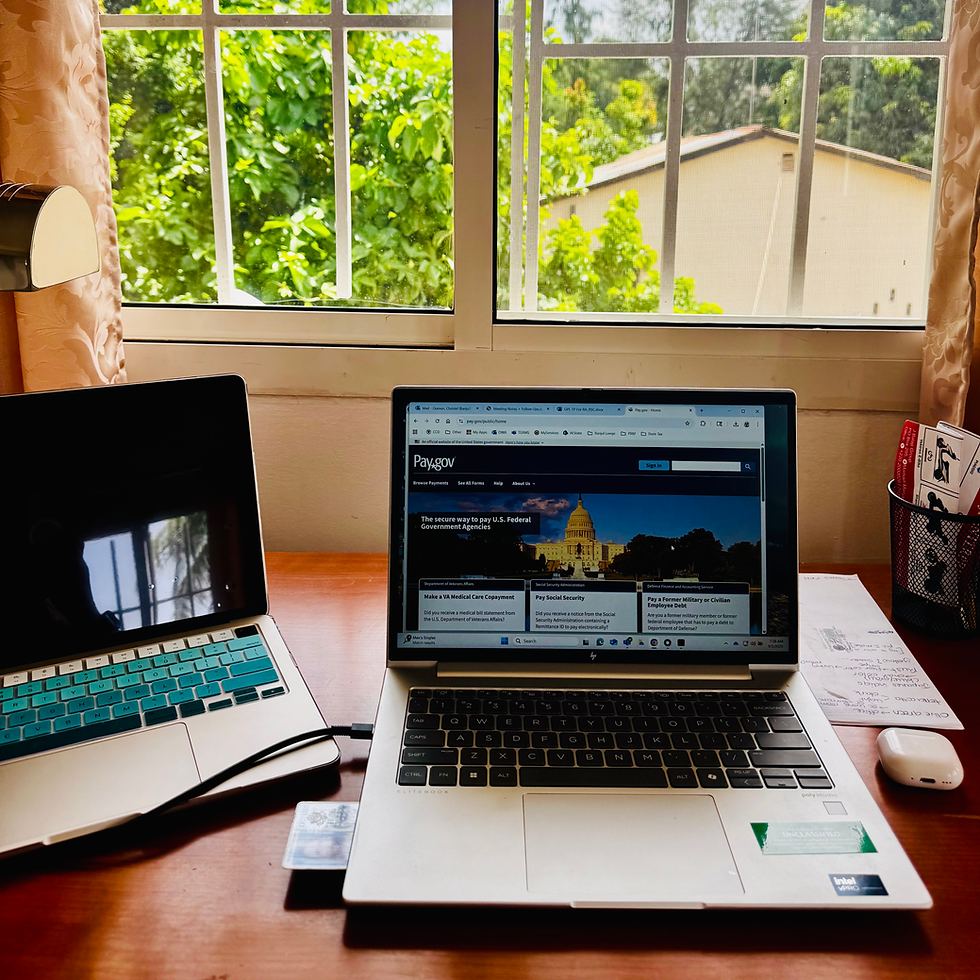My next assignment: PRM!
- Owner

- Nov 21, 2024
- 3 min read
Six weeks ago I received an email from the Bureau of Population, Refugees and Migration. I wasn’t surprised, because during the preceding three weeks I’d interviewed with five different departments, trying to convince each of them to hire me. I applied in other bureaus too, but those were backup options. For my next tour, I wanted a PRM job.
I opened the email while I was still half asleep. I was used to getting bidding related emails, because the bidding season had been dragging on for two months at this point. Since August I’d been reaching out to incumbents, asked a dozen colleagues to write support letters for me, and submitted to far more interviews than I cared for. At work, all we seemed to talk about was bidding.
The email opened with platitudes like “Thank you for taking the time to interview for the position” and “We enjoyed speaking with you.” I scanned the rest of the email for words like “unfortunately” and “good luck with the rest of the bidding season” but instead found “You’re our number one choice”!
Grand return
The prospect of working for PRM again fills me with joy and a sense of purpose. The whole reason I wanted to become a foreign service officer was because I loved my PRM job in Islamabad so much, back in 2012. It opened my eyes to the possibility of having a career with access to a wide variety of jobs, including jobs I find particularly meaningful. Like humanitarian work. Working to increase the safety and wellbeing of refugees feels like much more than just work. It’s something I want to do anyway.
After my previous stint with PRM, a one-year position in Pakistan, I’d moved into the consultancy field, where my work on human rights and migration was frequently overshadowed by worries about the company’s bottom line. I was always thinking about what grant to go for next and had little time to focus on quality and impact. That’s the private sector for you.
Next, after I joined the State Department as a generalist, I worked as a consular officer for five years, which I enjoyed because it allowed me to talk to thousands of people and get a real feel for why people travel and emigrate, and all the laws and procedures that facilitate or complicate this. But I needed a change, a break from process, efficiency, and management. I wanted to use and develop my other skills and follow my true passion.
Wait, my portfolio is what?!
I know I’m wearing rose-colored glasses right now. Most likely, the job will absolutely feel like work. I won’t be a field officer but a program officer, which means lots of paperwork and meetings. Also, I’m going to work remotely from The Gambia, so there’s a risk I’ll feel disconnected from my PRM colleagues. Moreover, the United States cut funding for UNWRA last year and we’re going to have a new administration soon, so the direction is unsure right now.
As I mentioned, I applied for five different jobs. I was completely taken by surprise that they gave me the Palestine refugee assistance portfolio. Most of the other jobs made more sense, I figured. One job was about Afghan refugees— the same refugee population I worked with ten years ago! Another job focused on West Africa, where I’ll be living the next three years. A third job was the only one advertised as DETO (telework) eligible, so I figured I’d have a better shot at it. Why I got the Palestinian refugee portfolio is totally beyond me! That’s the State Department for you.
But I’m an optimist and, when it comes to things I like, have boundless curiosity. So I’m already on a mission to learn as much about the topic as possible. Having degrees in history and international relations definitely helps. I’m also planning to spend a few weeks in Washington DC this summer to get to know my new colleagues. I think this will be a lot of fun. The only hurdle I still have to clear is negotiating my DETO (telework) arrangement, but I have the approval in writing so I’m not too concerned. I just hope I won’t have to work too many evenings…

———







